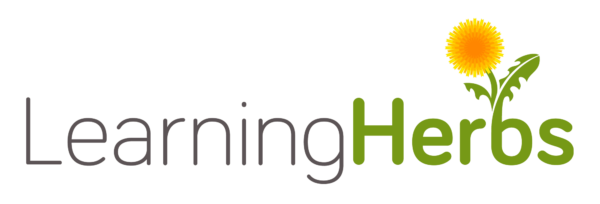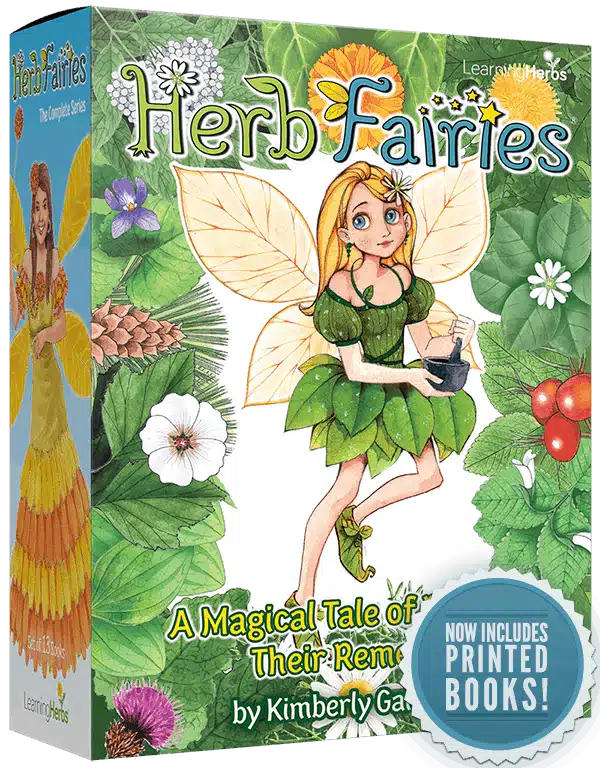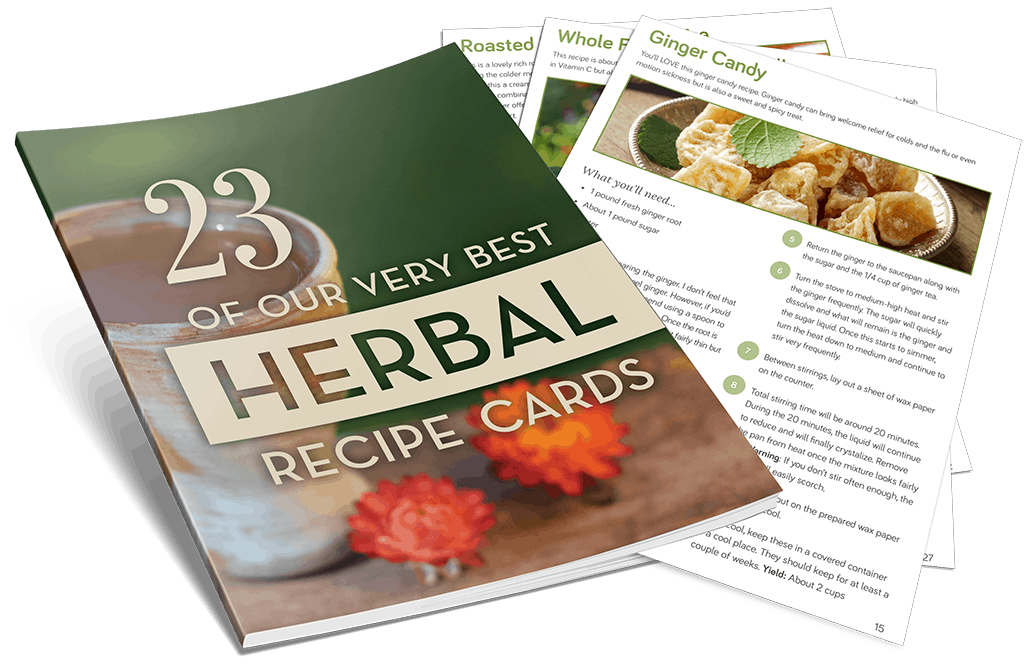With viruses making all the headlines, many people are wondering about antiviral herbs.
In this article I will describe antiviral herbs and address their antiviral properties and how they work.
How Do Antiviral Herbs Work?
When we hear the term antiviral, it’s easy to jump to the conclusion that they work just like pharmaceutical antibiotic drugs. In other words, if you have an infection, then you take something to kill the pathogens.
But herbal antivirals don’t work that way. In fact, they simply can’t work like pharmaceuticals.
Let’s take a step back to see the difference between a bacterium and a virus. Bacteria are living organisms that come in a variety of shapes and have a cell wall. Bacteria live in close association with plants and animals. Virtually all animal life on earth is dependent on bacteria, as they synthesize vitamin B12 into the food chain. As you know, we also have billions of beneficial bacteria living in our guts! However, some bacteria can cause infectious diseases, which can be controlled with antibiotics or antimicrobial herbs.
Viruses, however, are on the edge of life. They don’t have a cell wall and are not able to reproduce on their own, thus they need a host cell in order to replicate themselves. When you have a viral infection, the viruses have invaded your cells. Controlling a viral infection is problematic because the virus is replicating from inside your own cells.
Instead of killing viral cells, what herbal antivirals can do is inhibit the virus from attaching to your cell walls or inhibit the replication of the virus once it gets into your cells. This herbal help can then give your immune system the upper hand to clean up the rest of the infection.

How Do We Know if an Herb is Antiviral?
In times past, we didn’t have the microscopic means to differentiate between the causes of various illnesses. Something that was caused by a virus wasn’t necessarily differentiated from something caused by bacteria. With the current microscopic and genetic analysis tools of researchers, we have a lot of knowledge about the many types of pathogens that can cause infections.
Nevertheless, we have traditional uses of herbs with a wide range of gifts and the combined experience of herbalists from the distant past to the present to support the use of a number of herbs in viral infections. For example, herbalists everywhere would probably agree that elderflower has antiviral properties, supporting a body with influenza accompanied by fever.
One modern way of establishing whether an herb is antiviral is to test it against viral cells in a laboratory. These tests are called “in vitro,” meaning not in a living body. Using a variety of methods, researchers introduce herbal extracts to viruses in a culture dish and then analyze the results. This kind of research can show us some of the ways that herbs work.
In vitro studies or studies using isolated plant constituents aren’t inherently bad. The problem arises when we use those studies to jump to conclusions that aren’t supported by the research. For example, if there is an in vitro study using an isolated extract of a plant that shows promising results, it’s misleading to turn around and claim that the whole herb will have the same results when used in a human. There are a lot of reasons why we might not be able to get the herb at a high enough concentration in the human body to have the desired effects, including rapid processing by the body, potential toxicity of high doses of the herb, or simply that you just can’t get enough herb into the person to have the desired effect.
In summary, when you see claims about an herb’s antiviral activity, here are some ways to critically assess that information:
- What is the basis for the antiviral claim? (Traditional use? Modern-day use? Research?)
- Was there a study of some kind? Was it an in vitro study, a study in animals, or a human clinical trial?
- What part of the herb did the study use? What preparation of the herb was used? (Note: Isolated constituents, toxic methanol extracts, or essential oils are often used in these trials. These preparations are not whole herbs and are often unsafe or impossible to make at home.)
Sometimes in vitro studies confirm what we already know about an herb because of our experience. For example, I knew that St. John’s wort (Hypericum perforatum) exhibited antiviral activity and inhibited herpes simplex virus (HSV) long before I knew of any studies supporting that action. Once I saw those studies, it simply confirmed what I already knew from experience. While it is important to recognize what science can teach us, it isn’t the only way we know about herbs.
In addition to in vitro trials, there are in vivo (in a living being) human clinical trials evaluating the effectiveness of herbs in regards to viral infections. There also are in vivo animal studies, but because these are often unethical, I do not cite them in my articles.
Here is a summary of an in vivo human trial. This study followed 312 airline passengers flying overseas from Australia. Half were given an elderberry (Sambucus nigra) preparation and the other half got a placebo (harmless fake medicine). Those taking the placebo had slightly more occurrences of colds or influenza during their trip than did those taking the elderberry. More significantly, those taking the elderberry who did get a cold reported a marked reduction of cold duration and severity compared with those taking the placebo.1

Herbs Go Beyond Being Antiviral
As is often the case, herbs rarely do just one thing: they offer a wide range of gifts. Some herbs that have antiviral activity can also modulate or boost the immune system. That’s really cool! Because really, when we talk about any type of infection, it’s your immune system that is the biggest and baddest player on the field and you want to support it and rely on it as much as you can.
Using herbs to ward off a viral attack is just one way to use herbs for a viral infection. There are many other ways we can give the immune system a helping hand in its endeavors.
When it comes to upper respiratory infections, we can think of using herbs in several ways:
1. Prevention
Many herbs can modulate or strengthen the immune system. When taken before an illness (or sometimes at the start of an illness) these immune-modulating herbs can shorten the duration of an illness or stop it entirely.
Most of us would agree that not getting sick in the first place is the best choice! That’s why herbalists love to spend a lot of time promoting herbs that build and nourish the immune system, like astragalus (Astragalus spp.) and medicinal mushrooms. Many herbalists’ experiences show that nourishing the immune system can help to stave off illness, and this is especially helpful for people who are overworked or stressed on a regular basis.

2. Treatment: Support Healing and Address Symptoms
Many over-the-counter drugs for colds and influenza are aimed at stopping any and all symptoms, often by inhibiting your body’s natural defenses. Symptoms are the body’s response to the viral pathogen – stopping symptoms like this can often reduce our ability to heal.
For example, if you have a lot of congestion, you can take a decongestant that will dry you out. This is problematic because mucus is a valuable part of the immune system, acting to envelop and flush pathogens out of the body.
Or if you have a fever, you might take aspirin or a similar drug to artificially lower your fever. This is often counterproductive because the fever is your body’s attempt to rid your body of the invading pathogens, which are sensitive to high temperatures.
Or if you have a cough, you could take a cough-suppressant medicine. You can probably guess that this might be a bad idea, to keep all of that mucus in your throat and lungs, and might even lead to deeper problems like lingering cough, bronchitis, or pneumonia.
The bottom line is, unless symptoms are severe, we don’t want to stop those important processes.
Herbs especially excel when they are used to support your immune system, rather than trying to stop it. With herbs, you can get some symptomatic relief while also supporting healing and shortening the duration of your illness.
For example, if you have a lot of thick, stuck congestion, you can take herbs that thin the mucus and help you dispel it. The result is that you don’t overly dry your mucous membranes and you support your body’s natural defenses (the mucus) while also helping your body expel the gunk (technical term!).
If you have a fever where you feel cold and chilled, you can take herbs to warm up your body and support a healthy resolution of the fever process. If you have a fever where you feel hot and restless, you can take herbs that help you to naturally relax, release heat, and resolve the discomfort.
When herbs are used in this way, they aren’t necessarily “antiviral” as much as they are profoundly supportive of your body’s natural responses to a viral infection. My friend and fellow herbalist jim mcdonald calls these types of herbs “indirect antiviral herbs.” While these herbal allies don’t work directly on the virus, they do support our body’s defenses against the pathogen.

3. Recovery
I often see a critical piece missing when people are using herbs to address an upper respiratory infection: recovery. Because the virus takes over and destroys many of your cells in its effort to replicate, viral infections are tough on the body and can leave you feeling worn out, worn down, and deeply tired. In our rush to get back to work and responsibilities, it’s easy to ignore the recovery phase. However, in my experience, this can lead to further illness or an even longer recovery time.
Rest and simple nutrient-dense foods are obviously important for recovery. Herbs can also play a supporting role.
For example, our lungs often feel the effects of a virus long after other symptoms have abated. Using herbs to strengthen and restore lung health can shorten that recovery process. I often get a lingering dry cough after an upper respiratory infection; using demulcent herbs to soothe my mucous membranes is my favorite way to quell that irritation. It works so well that I often wonder what people do without herbs!
A Time-Honored Western Herbal Formula for Viruses
In light of this discussion about using herbs for colds, influenza, and other viral infections, I am sharing a recipe from Emily Han’s and my book, Wild Remedies: How to Forage Healing Foods and Craft Your Own Herbal Medicine.
This recipe is our version of a very old western herbal formula that has most likely been used for hundreds or thousands of years. It is one of my most-recommended herbal teas for symptoms of an upper respiratory viral infection. I often reach for it during influenza season, and I’ve seen it stop a cold or influenza from coming on. I’ve also heard from many people who were amazed at how much better it made them feel while they were sick.
Before we get to the recipe, let’s look at the ingredients:

Elderflower (Sambucus nigra, S. nigra ssp. canadensis, S. nigra ssp. caerulea)
Elderflower is one of our best herbal medicines for supporting a healthy fever process, especially when someone is hot, restless, and not sweating. This healing flower relaxes and opens the capillaries and allows for heat to escape. People also commonly take elderflower at the onset of an illness to shorten the duration. Herbalist Maude Grieve wrote in the 1930s that elderflowers are an “almost infallible cure for an attack of influenza in its first stage.”2
To confirm the long tradition and experience of herbalists, an in vitro study shows that elderflowers contain immune-modulating constituents.3
There have been recent concerns about elderberries and their connection to worsening viral symptoms and possibly creating cytokine storms. However, there is no scientific evidence, or even case studies, showing that elderberries promote cytokine storms. I’m not concerned about the use of elderberries or elderflowers at this time.

Yarrow (Achillea millefolium)
Taken as a hot tea, yarrow can make you sweat. It promotes circulation to the periphery, dilating capillaries and letting heat escape through the skin. Used in this way, it can be a powerful treatment supporting the fever process when someone is hot, restless, and not sweating. Yarrow is very similar to elderflower in this action, but based on their taste and my experience, it feels like they work in different ways. jim mcdonald says he thinks of yarrow as more of a stimulating diaphoretic, helping to actively push the circulation to the exterior to clear the heat.
From modern science, in vitro studies show that yarrow may also have the ability to inhibit viral replication.4
Note: Yarrow is not recommended during pregnancy.

Rose Hip (Rosa spp.)
While fresh rose hips are famous for being high in vitamin C, dried rose hips are also filled with antioxidants that help to modulate inflammation. The soothing demulcent qualities of rose hips can also soothe an irritated and dry throat. Plus, they taste really good!

Mint (any aromatic mint)
Mint can bring welcome relief to the symptoms of colds and influenza. Hot mint tea can support a healthy fever process while also relieving tension and mild aches and pains and supporting the digestion during the viral infection. In the following recipe it also helps to improve the flavor of the tea.
Yarrow and Elderflower Tea
This is our version of a very old western herbal formula for colds and influenza. It’s effective for relieving general discomfort, but gentle enough for most people and even children. Both elderflowers and yarrow are relaxing diaphoretics, making this blend especially well-suited to people with fevers who feel hot and restless. For best results, sip this warm tea frequently over the course of an hour or so, rather than all at once. Putting it in a small thermos will keep it warm.
Peppermint (Mentha x piperita), spearmint (Mentha spicata), lemon balm (Melissa officinalis), or even bee balm (Monarda fistulosa or M. punctata) are wonderful mint family members to use in this blend. This is a strong-tasting tea. If you have a sensitive palate, you might want to start with less yarrow or steep it for less time.
What you’ll need…
- 1/4 cup dried yarrow leaves and flowers
- 1/4 cup dried elderflowers
- 2 tablespoons dried rose hips, cut and sifted, or 1/4 cup dried whole rose hips
- Big pinch of dried mint, any type
- 2 cups water
- Honey, to taste (optional)
- Place all of the herbs in a pint jar.
- Bring 2 cups of water to a boil. Pour the water over the herbs, cover, and let steep for 30 minutes.
- Strain. Add honey to taste, if desired. Sip while warm.
Yield: 2 cups
Recipe and recipe photo from Wild Remedies: How to Forage Healing Foods and Craft Your Own Herbal Medicine by Rosalee de la Forêt and Emily Han (Hay House, 2020)
Want to Make Your Own Home Herbal Remedies?
Whether you’re new to herbs or a seasoned herbalist, take your home apothecary to the next level with Apothecary. Apothecary is our collection of beautiful videos that walk you through how to make our favorite herbal remedies step-by-step. With Apothecary, you’ll learn how to make elderberry syrup, fire cider, echinacea tincture, garlic honey, lip balm, a healing herbal salve, and more.
Now I’d love to hear from you!
What are your favorite ways to enjoy yarrow or elderflower?
Were you surprised to learn anything about antiviral herbs or about using herbs for prevention, treatment, or recovery?
Please share in the comments below.












Thank you for the wonderful article. If you have elderberries instead of elderflower, would that substitute be appropriate in this tea recipe for the same purpose? Thanks! Cathleen
I prefer to use elderberries differently. I like to simmer than rather than just steep them. I also use them in higher quantities, around 30 grams per day. I do frequently take elderberries at the first sign of a cold or flu. If you do a search on this blog for elderberries you’ll find some of my recipes. Enjoy!
Thank you, tea is healthful on so many levels.
Wow, lady, you’re cranking out the super-helpful articles today! This is my go-to formula for cold and flu. We drink it by the gallon when anyone gets sick. I add/swap out the peppermint for other herbs specific to the illness — ie, bee balm for respiratory funk, calendula if there is swollen glands, marshmallow leaf for general dryness, etc. It has kept my family’s colds short and sweet (with the addition of honey ;) ). Thank you!
Love those substitutions! Drinking it by the gallon sounds about right. :) Thanks for sharing!
Can ederberries be used instead of ederflowers?
Both Rosalee and I prefer to use elderberries differently than elderflower.
I’m confused about elder flower and elderberry. Should they be used interchangeably? Do they have different uses? I have been taking Gaia Elderberry capsules as a tonic for a few months. Is it wise to continue to take them when I get a cold?
I use elderflower and elderberry differently. I personally don’t use elderberry as a preventive, only when I feel something coming on. It’s not necessarily bad to take them as a preventive, just now how I do it. If you do a search on this blog for elderberry you’ll find other articles I’ve written about them, both with lots more information and recipes.
Thank you for this helpful information & recipe
Thank you!! So much to learn about herbs!!
Can you sub orange peel instead of rose hips. Some people have allergies to rose hips. Yarrow is one bitter herb. The key is to brew it for a short period with yarrow otherwise bring on the honey.
Yes, I think orange peel would be a lovely substitution! Enjoy!
Thank you for the information especially in this trying time! I have used elderberries, never elderflower for tinctures and teas with very good success! Also, Astragalus, and add mint to most of my tea blends especially if Im combatting something! Ginger, dried especially, is really good an cayenne helps during this time of year to increase heat of the body!
Where does one get elder flower when it is not blooming? Can you purchase them dried? Are they from the elder tree or the elderberry bush?
Elderflowers come from the plant in the genus Sambucus (commonly Sambucus nigra and S. cerulea). I believe they are technically a shrub but I’ve seen them referred to as both a tree and a bush. You can find the dried flowers at online apothecaries, local apothecaries, health food stores and with local herbalists.
great article.
Thank you for sharing your wealth of knowledge and experience. My husband and I are in our 80s and are very keen to stay healthy. We are learning everything we can. Really enjoying making everything in my Herbal Remedy Kit.
I really enjoy, and learn much from your articles. I especially want to thank you for going the extra mile – especially at this time- and sharing your wealth of information with others! This coronavirus has many people scared beyond the point of reason, and so many have no idea where to turn. Personally, I feel that the more we can help other people understand and use herbs, the better-off everyone will be! And I have been referring many of my friends to look at your site, perhaps take your basic course (the best herb for you), and discover a whole new world! Thank you again with all my heart!
I have elderberry syrup which I made with berries from my bushes, I have been sipping on it . At the time I harvested my elder I did not know the difference…I had heard the flower made good tea, but was interested Meds so I did not collect any flowers :-(
St Johns Wart? I hesitate using because there always is a caution about getting in the Sun if you are taking it, “will cause a rash”…This was capsule of the herb, so….maybe the tea would not react in this way?
Thank you so much for the recipe…NOW I’ll have to order the flowers, you’re a good sales lady! LOL
You go girl…love it
Blessings
Jean
If using tincture of elderflower and yarrow, what would you recommend as a dosage?
In mid February, I became ill with what I thought was Infulenza A – I did not go to a doctor so I am still not sure what it was. Onset brought me headache, fever, body ache, diarreah and sore throat. This was Thursday evening. I began by taking a tbsp of elderberry syrup with echinacia, tbsp of fire cider, a full dropper of liquid zinc which i held in my throat as long as I was able before I swallowed. I also took a full dropper of willow bark tincture for my headache. Then I made myself a large cup of ginger, lemon, honey tea and went to bed. The next day my symptons included a deep chest cough, fever, body aches and extreme fatique. I continued with my regimen of elderberry syrup, added echinacia tincture, fire cider, mullein tincture and took those every hour. I sipped ginger, lemon, honey tea all day as I was able. I also took white willow bark every couple of hours and oil of oregano capsules twice a day. This was on Friday. I continued this regimen on Saturday and also because the weather was beautiful, even though I was exhausted, I tried to sit in the sunshine for an hour. I also made myself a healing chicken soup with lots of onion, garlic, astragulus, celery, and mushrooms and ate that. I was not able to eat much up until this point. I was so fatigued but I could not sleep well, at times I had a racing heartbeat. By Sunday morning, I felt like a new person. I have never been so happy to feel better and to have had these wonderful, helpful, healing herbs to help me through it. I continued to have a very deep chest cough for the next few weeks. I have not been sick in years and this was a tough one. Herbs worked beautiful for me and I use them daily to keep up my immune system. I have learned most of this through my studies with you all in the last year. Thank you!
Great article!! What kind of yarrow? The white flower or does it matter? Thank you!!
I prefer the white varieties for the most part. Sometimes there are yarrow flowers with a pink tinge that taste and smell like the white variety. I would avoid cultivars which are bred for color in gardens.
My rose bush still has all last summers rosehips, dried, on it. Are they worth harvesting now, or are they too old? I live in a cold climate, where they will have frozen over the winter.
Depends on how they look. A lot of the rosehips that are still on my wild rose bushes are filled with insect holes and are very mushy. I wouldn’t use them unless I was really desperate. If your’s are still firm and look vibrant then sure!
Thank you for this helpful information.
Can you add a note regarding pregnancy? Years ago, I almost took yarrow tea for a nasty fever (turned out to be a super bug) that I had while 7 months pregnant. Thankfully I caught myself and double checked just in time–that could’ve been terrible.
Thanks for this article, I’ll be sharing it online!
Stay safe ? wash hands
Thanks for sharing that Cassandra, I’ll get something added asap. <3
Thank you very much for your article, the elderflower yarrow tea recipe seems effective. How much is this should you drink per day?
I would drink 1-3 servings of this per day. It’s best to drink it in small amounts frequently throughout the day rather than all at once.
Very great article! I do a good amount of preventives. I’ve used elderberry syrup as one of my staples. I’ve wanted to use the flower as well as I continue to read all the benefits. Back a couple months ago, I came down with what I thought to be bronchitis. I have an apothecary book I had been reading at the time. It referenced fennel being a herb used to help relax the bronchial passages. I went right to making the tea to hopefully get some relief. I instantly felt better after I cup. I made one the following day and I felt back to normal. Any experience with fennel being used for bronchitis?
I’ve never used fennel for bronchitis, thanks for sharing! Very interesting!
Thank you for dedication to us.
Thank you very much for your article. I always learn something when I read your articles. Can I ask a question? Which herbs “thin the mucus”? In your article you state, “if you have a lot of thick, stuck congestion, you can take herbs that thin the mucus”. (Thanks).
There are two types of herbs that can thin the mucus. One is demulcent herbs the other are stimulating expectorants. I often combine the two. Hydration and steams are also foundational ways to move stuck mucus.
Thank you. Hare Krsna
Great article thanks a lot.
Love all your information and recipe for the elderberry tea. Makes me wish I had become an herbalist ?! At least we have you for great resources. Thank you!
My friend jim mcdonald loves to point out that if you use herbs in your life then you are definitely an herbalist. :)
I made something close to this recently for my son. He gets a fever periodically that only lasts for a day, but he’s run down and hot and doesn’t eat. The next day he wakes up his normal exuberant young self. I think it’s how body’s wonderful way of fighting off a cold before it takes hold as he might be a little congested the next day, but it’s always mild and usually only lasts another day or two.
Anyway, I make him (and all my family when they’re sick) a tea of yarrow, rose hips, and mint. I made it purely instinctually, knowing that they all worked to help with fever and health. I’m so glad, and emboldened, to see this blend has been used for so long for this very thing. Now I only need to find a supply of elder!
My grandma gave me a recipe for something close to this many years ago. It included the yarrow, and elder flower, but no rose-hips or mint. Instead she used echinacea, mullein and lemon balm. It works great.
Would you be willing to share your recipe? I have some mullein around that I would love to add, but I don’t know how much would be good. Thanks!
Hello Rosales. Thank you so much for this very informative article. It has been a real eye opener for me. I am presently doing a herbal medicine course here in the UK and this information is invaluable. Thank you once again and keep up the great work. God bless you all.
Thank you for a new learning experience,I am keen to make a study for longevity and a healthy life through the usage of herbs
Thank you for all you do to teach us how to stay healthy. I made Elderberry syrup from the recipe in your first book which is easy to follow and very informative. I did not have apple juice so I used organic apple cider. I used half the amount and adjusted the honey for my taste. It’s great I am currently recovering from a cold and with the corona virus I was worried. However, I only have a cold I started on my syrup and garlic honey. I know it greatly diminished my symptoms.
Thank you
I intend to make a bled of this for myself and family, however, I strongly dislike mint flavored tea. Will probably use Lemon Balm. Looking for other good suggestions for a substitute.
Ginger, Holy Basil, Licorice……..?
Thank you so much for providing a printable recipe link.
Would Lobelia be a good and safe bronchodilator to add to this blend?
I wild harvest my elderberries and since I’m so focused on every tiny berry I always hesitate to use the flower as then I lose that many berries. Perhaps I will break down and collect some flowers this year??? I’ve never used yarrow and dont think I’ve ever seen it before. One of my favorite herbs that is just now popping up in central Missouri is stinging nettle, which I will be picking some today! Thanks for all your information. I am in awe of your knowledge!
This is the best article I have read yet! Thank you!